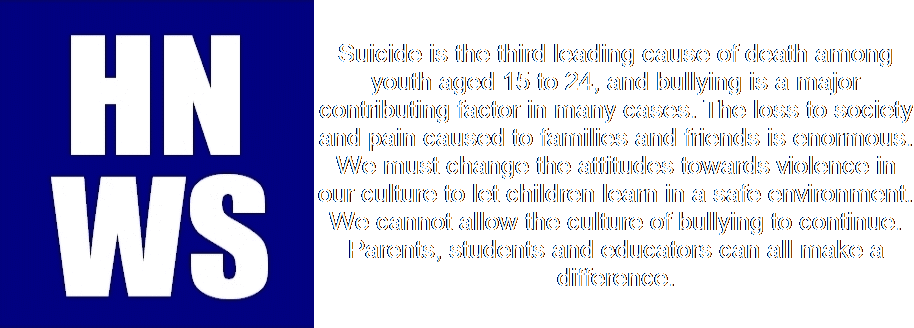The phrase "zero tolerance" has been around a long time, but I think it's time we stepped back and took a fresh look at it. It seems to me that after a couple decades of attempting to use this concept to control student's behaviour and discourage violence and bullying, that it hasn't worked all that well. So what went wrong?
On the face of it, zero tolerance seems like an obvious enough concept, but is it really? Nobody sensible person wants to tolerate unacceptable behaviour, but there's the catch - the definition of unacceptable. Not all physical responses to a situation are the same. Somehow, we have managed to equate these two concepts under the umbrella of zero tolerance.
The idea that both the aggressor and the victim both should be disciplined for their actions is taken for granted today, but I maintain that this is sending the wrong message to both victim and bully. The victims are told that being attacked is at least partially their own fault. Otherwise, why would they be disciplined? The bullies receive the message that their actions are no worse than their victims', otherwise why would they both be disciplined? By leaving the victim no reasonable and allowable response, they are effectively cornered with no way out. Is it any wonder that some eventually look at suicide as an option?
The aggressor, on the other hand, is given no compelling reason not to continue such attacks. According to many experts, feelings of inferiority and being neglected are one common cause of bullying behaviour. The consequences of bullying another student under a zero tolerance policy leave them feeling equal to the victim, exactly the feeling they may well have been attempting to create by bullying others in the first place. This clearly cannot solve anything, yet nobody wants to question the underlying concept that leads to this outcome.
For as long as there have been laws, self defense has been recognized as a valid concept. For a long time, the concept of vengeance was also acceptable, but we feel differently about that today. An eye for an eye leads to a world of blind people, or so the thinking goes. I believe this is true; vengeance and retribution cannot solve anything. Self defense is not retribution, though.
As I've often stated, there is such a thing as a morally justifiable physical response to a threat. Why are we telling kids that they have no right to defend themselves? I believe the confusion arose from an honest attempt to simplify the job of teachers by mandating a purely objective response to such incidents. If the response is spelled out and the act of making a judgement call is removed from the equation, then everyone gets treated fairly. The problem is that life doesn't work that way. No amount of social engineering policies can change the basic truth that "fairness" is a human created concept. Life isn't always fair.
I believe the victim has an undeniable right to use whatever reasonable means are necessary to protect themselves. Self defense must occur at the time the attack occurs, any delayed response becomes revenge, and is unjustifiable. Similarly, the response must be appropriate to the attack. As a police officer once told me, under our laws, a victim may respond with equal force. In other words, you can't stab a person for hitting you, but you can hit back. If the attacks continue and escalate, then the victim is justified in escalating their defensive response.
If these concepts are accepted in the adult world, how are kids ever going to understand them, when they have been taught that no response is acceptable? They grow up believing in one set of rules, only to enter an adult world where the rules are the opposite. We must rethink our idea of zero tolerance to better match the tried and tested legal concepts that have worked for years in the adult world. Zero tolerance should apply to the aggressor at all times, nobody has the right to attack others, but it should also apply to revenge and inappropriate responses by victims. Being scared after the first attack does not give a kid the right to immediately become even more violent than the aggressor.
We must restore the idea that the victim is right and the aggressor is wrong, and if that requires teachers to think and make a judgement call, so be it. They're adults, and most adults are capable of making that call.
